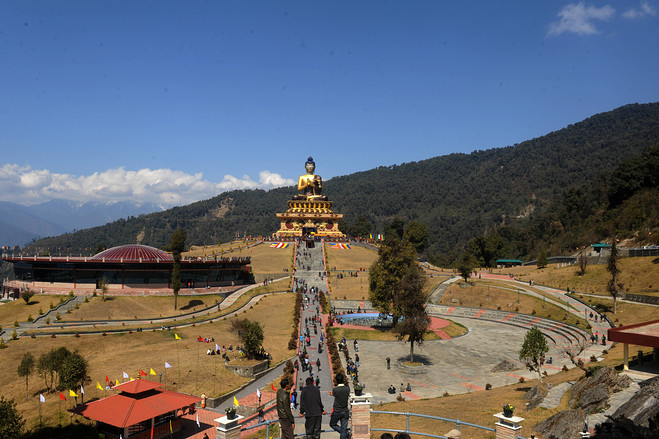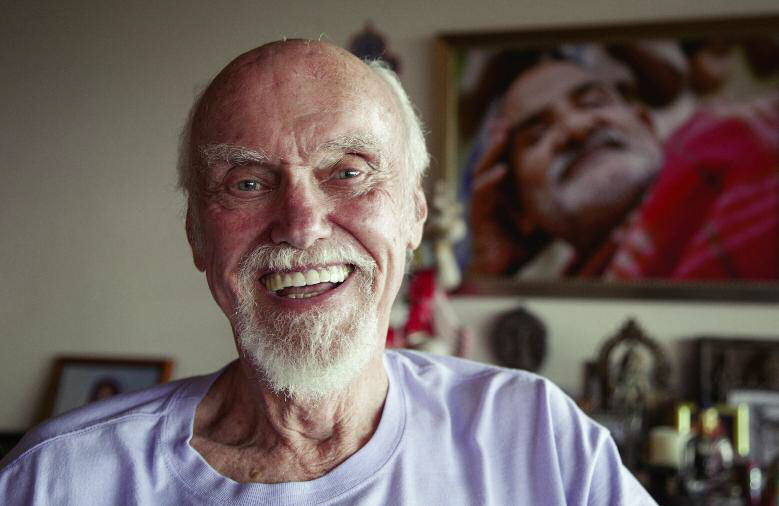Well, boys and girls, the discussion ain’t over. (As it shouldn’t be.) Soto Zen priest and author James Ishmael Ford has added his voice into the mix of American Buddhist teachers who are remarking on the Joshu Sasaki Roshi sex scandal. Unlike some of the other commentaries, which read with more passion than careful analysis, Ford takes a helpful step backward to look at the American Zen picture as a whole. As he writes, “Sex isn’t the problem.” In his view, the problem is our glamorization of our spiritual teachers, as well as the lack of institutional and personal accountability. He writes,
Zen, as it comes West, is anarchic. Individual teachers have come to this country, or people of American and European birth have traveled to Japan or other East Asian countries that transmit the Zen way in its varieties and with differing credentials have come home and taught, often with at best nominal connections to those East Asian communities.
As a result there are few larger structures here in the West, and while there are some proto-denominational organizations, none has much authority, and, frankly, with few prospects of acquiring such authority. Even if a couple of organizations do jell, I think our cultural proclivities will simply mean those who don’t fit into those structures will leave and set up shop independently.
A dismal portrait, perhaps, but an accurate one. Ford goes on to suggest that each Buddhist community should have published, workable ethical guidelines. And for the teachers who lead those communities? “People who teach Zen,” he says, “have to step up to the plate and accept responsibility.” Easier said than done.

The name of a new Buddhist complex, designed to promote tourism, was unveiled in Sikkim, India, on Tuesday. What’s the name, you ask? The truly original, undeniably innovative, refreshingly imaginative “Buddha Park.” Ah, well. No award for the naming team on that one, although the park does look pretty (photo above). India has been on a big kick lately to capitalize on the Buddhist tourism potential of their country.
 This week over at Parabola magazine, there’s a new, short interview with Ram Dass, (aka Richard Alpert of psychedelic pioneering fame), “Grace is Here!” The interviewers were quite taken with him—”After taking our leave of Ram Dass, we were high, intoxicated with his loving presence”—and from what I’ve heard from others, that really is what it’s like to be around him. It’s an interesting interview to read after being sobered by Ford’s remarks about treating our spiritual teachers like human beings, not putting them up on a pedestal as inheritors of some sort of magical wisdom. Still, reading Ram Dass always puts a smile on my face, so if you’re after some warm and fuzzies today head on over to Parabola to read the piece.
This week over at Parabola magazine, there’s a new, short interview with Ram Dass, (aka Richard Alpert of psychedelic pioneering fame), “Grace is Here!” The interviewers were quite taken with him—”After taking our leave of Ram Dass, we were high, intoxicated with his loving presence”—and from what I’ve heard from others, that really is what it’s like to be around him. It’s an interesting interview to read after being sobered by Ford’s remarks about treating our spiritual teachers like human beings, not putting them up on a pedestal as inheritors of some sort of magical wisdom. Still, reading Ram Dass always puts a smile on my face, so if you’re after some warm and fuzzies today head on over to Parabola to read the piece.
Thank you for subscribing to Tricycle! As a nonprofit, we depend on readers like you to keep Buddhist teachings and practices widely available.